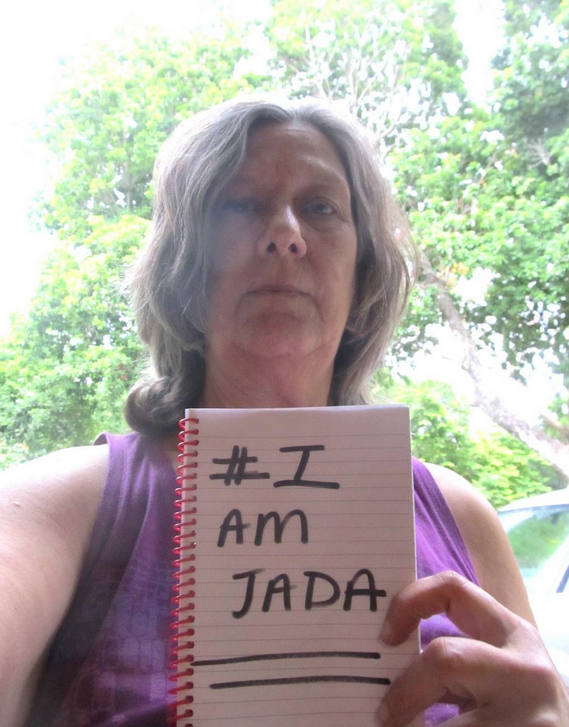![]()
Overview
Fire Emblem Fates Localization Controversy refers to the online backlash that occurred over the changes made to the English version of the Nintendo game Fire Emblem Fates, in which several aspects of the game appeared to be changed or removed. The localization of the game was handled by the Nintendo Treehouse, Nintendo of America’s product development division.
Background
Fire Emblem Fates is the fourteenth entry in the Fire Emblem series, a tactical role-playing game. On January 16th, 2015, Fire Emblem Fates was announced worldwide during the January 2015 Nintendo Direct Session. The premise of the game features the main character, the avatar (default name Corrin in English and Kamui in Japanese), must make a choice whether to side with their birth family in the kingdom of Hoshido, their adoptive family in the kingdom of Nohr, or refuse to side with either kingdom.
Notable Developments
Online Petition
On June 25th, 2015, an online petition was submitted to Change.org requesting that Nintendo not provide localized versions of Fire Emblem Fates to audiences worldwide. As of February 20th, 2016, the petition has gained over 7,700 signatures.
Removal of Skinship
“Skinship” (also known by its fan nickname “Fire Emblem Amie”) is a mini-game that appears in Fire Emblem Fates. The player can go to their Private Quarters and invite a character in their army, regardless of gender, to their home and pet them on the face using the Nintendo 3DS touch screen to strengthen their bonds with the character.
On January 26th, 2016, Nathan Grayson published an article to Kotaku titled, “The Other Ways Nintendo Is Changing The English Version of Fire Emblem Fates.” The article had stated that the face-petting mini-game had been removed from the English version of Fire Emblem Fates. The article had been updated on February 10th, 2016 with an exchange between Kotaku and Nintendo added for clarification (shown below).
Kotaku: I was told that a feature in which you can use the touch screen to directly touch/”pet” your characters is also out of the localized version. Is that the case?
Nintendo: Yes, that is the case. You might have heard somewhat misinterpreted or exaggerated information about the Japanese original game, but even in the Japanese original version, we have not included any features which are considered inappropriate in Japan.”
The removal of “Skinship” was reported to various video game websites, such as Nintendo Everything , Polygon , and the Fire Emblem fan site SerenesForest. Although face petting is not included in the English version of Fire Emblem Fates, the ability to invite someone to your home and receive support bonuses from them remains intact (shown below).
Exclusion of Dual Audio
On January 30th, 2016, Geniux submitted a screenshot of an email response from Ash Erickson of Nintendo of America that Fire Emblem Fates will not have the Japanese audio track (shown below) to the r/fireemblem subreddit. As of February 20th, 2016, the post has accumulated 0 points (50% upvoted), and 91 comments.
![]()
On February 5th, 2016, Nintendo released a statement to Polygon that Fire Emblem Fates would be released in North America in English only. Shortly after, edibubble submitted a post to the r/games subreddit reporting that the Japanese audio track would not be included in the English version of Fire Emblem Fates. The post has gained 712 points (82% upvoted), and 370 comments as of February 20th, 2016.
Although Nintendo did not comment on the reasoning behind the exclusion of the Japanese track, several people began theorizing on Nintendo’s decision. In the r/fireemblem subreddit , vkrili submitted a post suggesting that Nintendo may not have included dual audio because of licensing issues with the Japanese voice actors involved. As of February 20th, 2016, the post has accumulated 112 points (82% upvoted), and 111 comments.
Soleil & Male Avatar Support
After the Japanese release of Fire Emblem Fates on June 25th, 2015, a support conversation between the male avatar and Soleil was translated and submitted to Pastebin. In the original support, Soleil gets distracted from fighting cute girls in the battlefield and it greatly affects her performance. She asks for the male avatar’s help, and the male avatar agrees by putting a magic powder in Soleil’s drink that lets her see men as women, and women as men.
The support came under controversy during the summer of 2015 as the support was interpreted by some people as the male avatar drugging Soleil, and that Soleil was undergoing gay conversion therapy.
When asked about the Soleil support conversation, Nintendo released a statement to NintendoWorldReport (shown below) that any implications of gay conversion or drugging will not be included the North American and European versions of Fire Emblem Fates.
“In the version of the game that ships in the U.S. and Europe, there is no expression which might be considered as gay conversion or drugging that occurs between characters.”
The localization keeps the basic premise of the support conversation (shown below) , but instead of using magic powder, the male avatar has Soleil wear a blindfold and asks for her to imagine him as a girl.
In a SerenesForest thread , reactions to the new support conversation in general is seen as an improvement to the original Japanese support conversation.
Nintendo’s Statement
On February 15th, 2016, Nintendo released a statement (shown below) to Kotaku indicating that players would be able to interact with S-Level characters. However, these events were unrelated to the face-petting mini-game that was included Japanese version of Fire Emblem Fates.
“In certain circumstances, S-Level characters are able to wake up their spouses by blowing into the microphone or by tapping the screen to touch their hair, face or shoulder. These randomly triggered events are unrelated to the mini-game in the Japanese version.”
Beruka and Saizo Support Cut
On February 21st, 2016, YouTube user stricknit posted a short video of a support conversation between Beruka and Saizo in which each character only speaks in ellipses (shown below). However, in further support conversations between the duo, the characters proceed as if the initial support conversation has happened.
In the Japanese version, the specific support conversation features the characters speaking about their personal histories and divulge personal details, mostly surrounding assassination. Game sites, like Crave and WCCF Tech, reported that they believed that the original dialogue might be restored at some point.
#TorrentialDownpour
#TorrentialDownpour is a hashtag campaign launched in protest to the localization changes in Fire Emblem Fates (shown below, left) as early as January 27th, 2016. Prior to the campaign, the hashtag was used under a different context, by people tweeting about the weather conditions of where they live (shown below, right).
![]()
![]()
Alison Rapp’s Termination
As the aforementioned hashtag campaign and protests against Nintendo’s localization of Fire Emblem Fates continued to intensify, Alison Rapp, the spokesperson for Nintendo’s Treehouse division, which handles the translation of the company’s Japanese games, began engaging in heated debates with the critics of Nintendo’s localization policies, soon becoming a target of online harassment from angry fans of the game, as well as pro-Gamergaters and zealous critics of censorship in video games. Between late January and February 2016, Alison Rapp’s hostile exchanges with pro-Gamergaters and other critics of Nintendo’s localization were picked up by several video game news sites and communities, including Medium, Kotaku and Reddit’s /r/KotakuInAction. On March 30th, 2016, Alison Rapp announced via her Twitter account that she had been terminated by Nintendo (shown below), while insinuating that the company’s decision was in part driven by online harassments she had come under in recent months.
![]()
Nintendo’s Response
Later that same day, Nintendo responded to Rapp’s Twitter comments by issuing an official statement to the press, in which the company flat out denied any alleged connection between the termination of her employment and the Twitter feud she had become embroiled in, while offering an explanation that she was fired because she was “moonlighting” with a second job, a violation of the company’s internal policy.
“Alison Rapp was terminated due to violation of an internal company policy involving holding a second job in conflict with Nintendo’s corporate culture. Though Ms. Rapp’s termination follows her being the subject of criticism from certain groups via social media several weeks ago, the two are absolutely not related. Nintendo is a company committed to fostering inclusion and diversity in both our company and the broader video game industry and we firmly reject the harassment of individuals based on gender, race or personal beliefs. We wish Ms. Rapp well in her future endeavors.”
Search Interest
External References













































































































